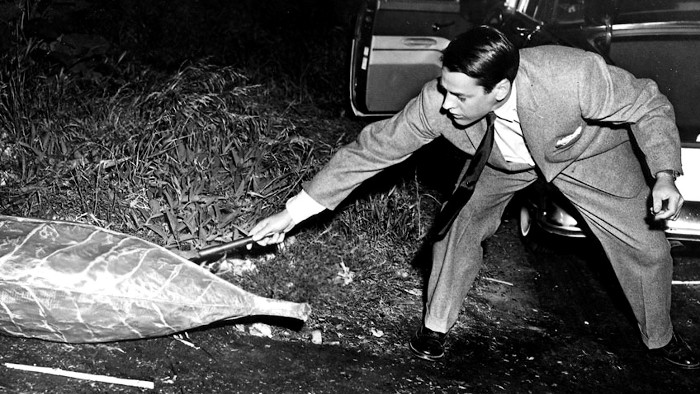
We recently discussed Culinary Oddballs, those misfit foods that defy categorization. For instance, most vegetables are either roots, stems, seeds or leaves, but the tomato … well, it’s not even classed as a veggie. It belongs to the fruit family. So does the avocado. Yes, you’ve been scooping up fruit dip with those tortilla chips. And the coconut? Another fruit, right? Nah, coconuts are actually really big seeds, and therefore fit better in the seed and nut category. Peas? They’re just plain weird, hiding in their green pods all quiet and unassuming, all the while plotting to take over the earth. (Like in the movie Invasion of the Body Snatchers!)
On the other hand, no one is fooled by the banana, right? Bananas are fruit, period! Banana cream pie, banana ice cream, bananas dipped in chocolate, Bananas Foster, banana pudding! And yet … the plantain belongs to the same family as the banana, but in many cultures the plaintain is prepared and served as a veggie. In fact, it’s often considered the “Hispanic potato.” In several Latin American cuisines plantains are baked, boiled, mashed, and fried — just like spuds. And by the way, we actually prefer tostones (crispy fried and salted sliced plantains) over french fries! So, is the plaintain a fruit or a veggie? Uh, yeah.
What do we do with these culinary oddballs? We enjoy them. We find ways to use them and help them fit in to our meals. We give the tomato a big group hug between two slices of rye with some baked ham; we blend the avocado with seasonings and make a killer dip that tortilla chips can’t resist; we sprinkle coconut on everything from shrimp to ice cream, and sometimes we lovingly smother it in dark chocolate; and peas … well, now that we’re adults we love them, too! And all these items can be tossed together in a salad or stew!

We also encounter “oddballs” in life. Good people that don’t seem to fit the standard profile. People with their own unique personalities, gifts and talents. People who have much to offer and contribute — if we let them. Maybe they have different beliefs, interests, or backgrounds. Maybe they’re just shy. But for one reason or another, they don’t fit in with the crowd. And know what? At one time or another, in some situation or group, we’ve all been there!
What should we do with these social misfits? Toss ’em out? Nope. Toss ’em IN. Make a social salad! How do we do that? By being welcoming and accepting and inclusive. Here’s God’s simple recipe for making a Social Salad. It’s really quite simple:
SYMPATHIZE! Remember what it was like when YOU felt alone and strange — like you didn’t fit in; like you were an oddball! Then treat others the same way you wish you’d been treated. Welcome them. Make them feel accepted and a part of your group, circle, etc. “You are not to wrong or oppress an alien [newcomer / misfit / ‘oddball’], because you were aliens [‘oddballs’] in the land of Egypt.” (Exodus 22:21 ISV)
STRATEGIZE! Think of ways to use their gifts and talents, ways to help them feel comfortable with the rest of the crowd. Help them find a place and fit in. “The stranger [newcomer / misfit / ‘oddball’] who resides with you shall be to you as the native among you, and you shall love him as yourself, for you were aliens [‘oddballs’] in the land of Egypt.” (Leviticus 19:34 NASB)
SOCIALIZE! Do we really need to explain this one? Just talk. Communicate. Be friendly. Share food, fun, and fellowship. Play nice together! “…Show your love for the alien [newcomer / misfit / ‘oddball’], for you were aliens [‘oddballs’] in the land of Egypt.” (Deuteronomy 10:19 NASB)
If you feel awkward or uncomfortable (or odd!) doing any of this, it’s probably because you’re fearful of coming across as an oddball yourself — a sure sign that you really do understand what it’s like. And if you understand … well … then you’re the best person to toss together a social salad using the “3-S” recipe!

 No, “Culinary Oddballs” is not the title of a new sitcom about a couple of kooky cooks; today we’re discussing those freaky food misfits frequently found in the kitchen: fruits and veggies that have the chutzpah to be DIFFERENT!! These curious culinary nonconformists keep us on our toes; just when we think we know them … we often learn something new and surprising.
No, “Culinary Oddballs” is not the title of a new sitcom about a couple of kooky cooks; today we’re discussing those freaky food misfits frequently found in the kitchen: fruits and veggies that have the chutzpah to be DIFFERENT!! These curious culinary nonconformists keep us on our toes; just when we think we know them … we often learn something new and surprising.
 Face facts: sooner or later someone’s going to misunderstand you, and mis-categorize you. It’s okay. You’re not alone. So relax and learn to be comfortable in your own skin. Repeat after us, “Thank you [God] for making me so wonderfully complex! Your workmanship is marvelous — how well I know it.” (Psalm 139:14 NLT)
Face facts: sooner or later someone’s going to misunderstand you, and mis-categorize you. It’s okay. You’re not alone. So relax and learn to be comfortable in your own skin. Repeat after us, “Thank you [God] for making me so wonderfully complex! Your workmanship is marvelous — how well I know it.” (Psalm 139:14 NLT)